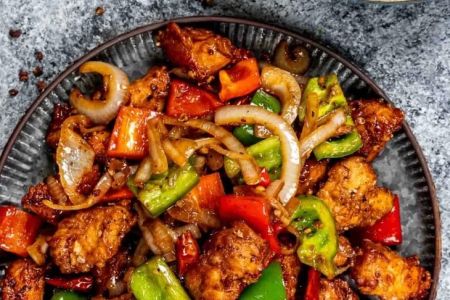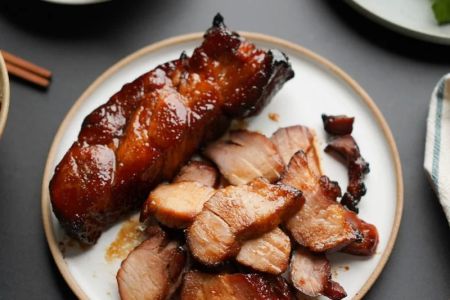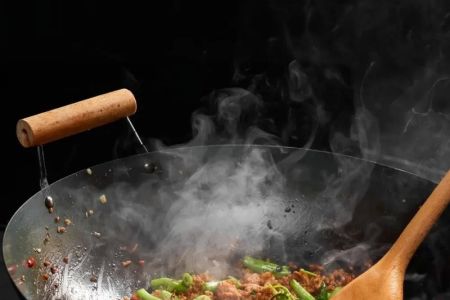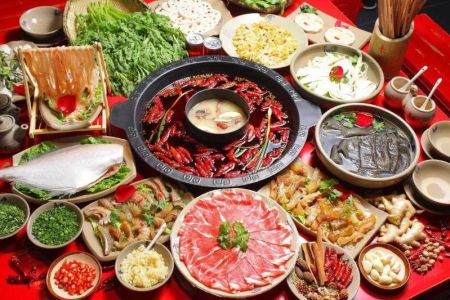How Long Does Chinese Restaurant Syndrome Last?
Chinese Restaurant Syndrome (CRS), also known as monosodium glutamate (MSG) sensitivity, has been a topic of debate for years. Many people believe that consuming MSG in food, particularly at Chinese restaurants, can cause a variety of symptoms, such as headaches, sweating, and a feeling of pressure in the chest. But how long do these symptoms last? As someone who has experienced these reactions firsthand, I want to share what I’ve learned about the condition, its potential effects, and how long it might last.
1. What is Chinese Restaurant Syndrome?
Chinese Restaurant Syndrome refers to a set of symptoms that some individuals believe are triggered by the consumption of monosodium glutamate (MSG), a flavor enhancer commonly used in Chinese food. Although MSG has been widely considered safe by health organizations like the U.S. Food and Drug Administration (FDA), there are still reports of individuals experiencing symptoms after consuming foods containing MSG.
Symptoms commonly associated with CRS include headaches, sweating, facial pressure or tightness, chest pain, and a sense of flushing or warmth. The idea behind the term “Chinese Restaurant Syndrome” originated because many people believed that Chinese restaurants were the main culprits in using high amounts of MSG in their dishes. However, MSG is found in many types of food, including snacks, processed meats, and other cuisines.
2. What Causes Chinese Restaurant Syndrome?
The cause of CRS is still not fully understood. Some researchers suggest that certain individuals may be more sensitive to MSG, while others speculate that it could be a reaction to the high sodium content in foods that often contain MSG. In some cases, people may be sensitive to a combination of MSG and other ingredients commonly used in Chinese cuisine, such as spices and high-fat foods.
While it’s true that MSG can cause adverse reactions in certain individuals, scientific studies have not consistently supported the idea that MSG is a widespread cause of food-related reactions. In fact, many studies have shown that MSG consumption is safe for the majority of people. That being said, there are a small number of individuals who may experience mild symptoms after consuming foods that contain MSG, especially if they consume large amounts in a single sitting.
3. How Long Does Chinese Restaurant Syndrome Last?
The duration of symptoms associated with Chinese Restaurant Syndrome can vary depending on the individual and the severity of the reaction. For most people, the symptoms are temporary and will resolve within a few hours after the meal. Typically, the symptoms subside within 2-3 hours, but in rare cases, they may last longer.
If you’ve consumed a large amount of MSG, you might experience symptoms that persist for up to 24 hours, but this is quite uncommon. In most cases, if the symptoms are mild, they will fade within a short time after the meal. Hydrating and resting are the best ways to alleviate any discomfort during this period.
4. How to Minimize or Prevent Chinese Restaurant Syndrome
If you suspect that MSG might be the culprit behind your symptoms, there are a few steps you can take to prevent or minimize the effects. One of the simplest ways to avoid MSG is by choosing restaurants or food products that advertise themselves as “MSG-free.” Many Chinese restaurants and packaged food companies now offer MSG-free options for customers who are sensitive to it.
Another helpful strategy is to limit your intake of foods that are high in sodium or contain other flavor-enhancing additives. Foods like soy sauce, processed meats, and snacks can often contain high levels of MSG or glutamate, which can exacerbate symptoms for sensitive individuals.
If you’re at a restaurant and suspect that MSG is in your food, don’t hesitate to ask the server if it’s used in the preparation. Many restaurants are now more accommodating and can offer alternative dishes or adjust recipes to meet dietary needs.
5. Is Chinese Restaurant Syndrome Dangerous?
For the majority of people, Chinese Restaurant Syndrome is not dangerous. The symptoms are typically mild and temporary, and there is no evidence to suggest that consuming MSG poses long-term health risks for most individuals. However, if you experience severe symptoms like chest pain or difficulty breathing, it’s important to seek medical attention immediately, as these could be signs of a more serious condition, such as an allergic reaction or heart-related issue.
Although the symptoms can be uncomfortable, they are usually not life-threatening. If you are one of the few individuals who experiences a strong reaction to MSG, you can easily manage the symptoms by avoiding foods that contain MSG or similar ingredients.
6. Should I Avoid MSG Completely?
There’s no need for most people to avoid MSG entirely. It’s a naturally occurring compound found in many foods, and scientific studies have shown that it’s safe for the general population. However, if you’ve noticed that consuming foods with MSG causes discomfort, it’s a good idea to limit your intake and be mindful of foods that may contain this ingredient.
If you do choose to avoid MSG, you’ll likely need to pay close attention to ingredient labels on packaged foods and inquire at restaurants about their cooking practices. While avoiding MSG may require some extra effort, it can be worth it for individuals who experience negative symptoms after consuming foods that contain this additive.
Conclusion
In conclusion, Chinese Restaurant Syndrome is a condition that affects a small group of individuals who are sensitive to monosodium glutamate (MSG). While it can cause temporary symptoms such as headaches and sweating, these symptoms typically resolve within a few hours after consumption. For most people, MSG does not pose a health risk, but for those who are sensitive, it can be helpful to avoid foods containing MSG or similar flavor-enhancing additives.
If you suspect that you might be sensitive to MSG, it’s best to monitor your symptoms after eating and adjust your diet accordingly. If you experience severe symptoms or have concerns about your health, it’s always a good idea to consult a healthcare professional. Taking these steps will help you enjoy meals without worrying about discomfort, allowing you to enjoy your dining experience to the fullest.






![Top Chinese Restaurants for Authentic Cantonese Cuisine in [Your City]](https://img.gochinarose.com/d33/2507/4157910400_450x300.webp)
